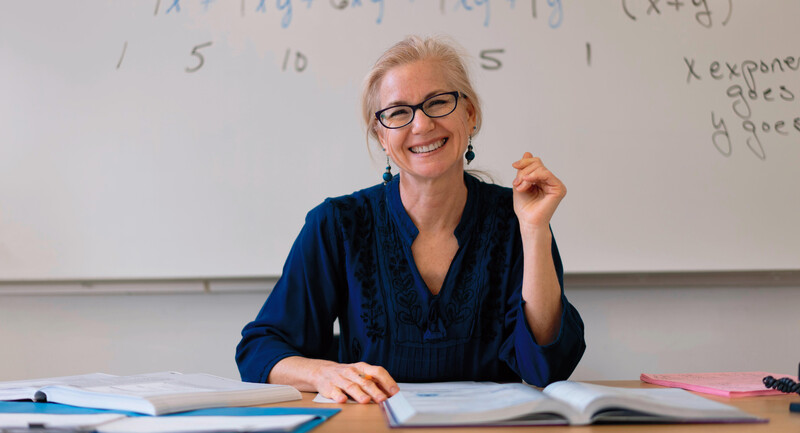This article was originally published by SmartBrief. For curated news from across the education profession, sign up for the daily ASCD SmartBrief newsletter.
Education cannot return to what it was in March 2020; that system did not work for everyone, Education Secretary Miguel Cardona said to educators last month at ASCD's Annual Conference in Chicago.
“We are at the doorstep of a new chapter of American education,” Cardona said. “Will we use this moment as a reset to boldly and unapologetically tackle the issues that have been pervasive in education? Or will we beat COVID only to succumb to complacency? We have more influence now than ever before in education. Let’s remember why we signed up for this profession.”
Cardona outlined his vision for moving American education forward — and the role whole child education plays in it — during his closing keynote discussion with ASCD Board President Avis Williams and a post-keynote interview with SmartBrief. Here are six takeaways from those conversations.
1. Create a culture of shared expectations
The most important thing school leaders can do in the next 22 months is create a culture of shared expectations—a culture of problem-solving, where they may face unique challenges and not have all the answers, Cardona said.
“These are different times,” he explained. “Creating a culture of intentional collaboration and looking at the whole child and the whole educator is probably more important now than ever before.”
Cardona credited intentional collaboration—teamwork among educators, school leaders and administrators—for getting schools to 100% in-person, full-time instruction. This type of collaboration will be key to bringing true reset to our schools, he said.
“Like the African proverb teaches us: If you want to go fast, go alone. If you want to go far, go together,” he said. “Even this city’s own Michael Jordan once said, ‘Talent wins games, but teamwork and intelligence wins championships.’ For our students each day in the classroom is a championship.”
2. Prioritize the whole educator
Improving outcomes for the whole child begins with improving support of the whole educator, Cardona emphasized.
“We need to think differently about how we support our educators or else we shouldn’t be surprised that they walk away,” he said. He outlined three strategies he gleaned from conversations and visits he’s held with educators over the last year.
Offer a competitive salary.
Many educators hold a master’s degree or higher; yet their salaries are not commensurate with their degrees. Added to this is the money they spend buying supplies for their classrooms and the time they take away from their families to plan lessons, grade school work or participate in school functions.
“We need to change that culture in education,” he said. “Lift the profession by paying what educators should be getting paid. And this doesn’t mean just [the American Rescue Plan]. We need to create the understanding at the state level [of the] importance of state funding for education and local funding.”
Improve working conditions.
Teachers need emotional support resources. Many suffered stress, anxiety and personal loss amid the pandemic. Counselors and other mental health resources offer valuable support as teachers continue navigating their new norm. When teachers know they’re cared for, they’re more likely to give their best, Cardona asserted.
“When that emotional bandwidth is full because you’re dealing with problems, it’s hard for you to be 100% of your job,” he said. “We have to make sure that we have folks whose job it is to be dedicated to the well-being of our professional staff, our classified staff, because when they’re OK, they’re going to take care of our kids better.”
Engage teachers meaningfully.
The work day should be conducive to professional growth. Cardona encouraged leaders to nurture intentional collaboration at their sites by embedding into the workday time for staff to come together, share ideas, discuss issues and problem-solve. “Teachers shouldn’t have to be learning about how to do a better job outside school hours, outside of their workday,” he said.
3. Go beyond the traditional relationship with families
COVID-19 turned students’ lives upside down. It was especially difficult for English-language learners, students with special needs and those with messy home lives—absent parents, food insecurity, homelessness and domestic violence, among other issues. Helping students recuperate—academically and emotionally—from the pandemic will call for a new relationship between home and school, Cardona said.
“The system’s responsibility now is to go beyond the traditional relationship with families,” he said. “How do we help families so they can support their children?”
Cardona urged school leaders to use their ARP funds to provide support services for families —counseling, behavioral health assistance, after-school programming—and help them reconnect with the school community. He cited the example of school districts in Boston and Las Vegas that used ARP dollars to develop parent engagement programs. At some sites, parents hold leadership roles at the school or in classrooms. Other sites hired family-school liaisons. These individuals visit students’ homes and foster relationships with families, in particular those who may have suffered increased trauma from the pandemic.
Programs like these go a long way toward reengaging the home-school connection. We must build these partnerships if we want to move forward educating children, said Cardona.
“Parents must be at the table. They’re the most influential and most important teachers of our students,” he said. “Whether they’re prepared or not, we have to work to build a family.”
4. Control the narrative
Educators need to share the wins they’re seeing in their classrooms. “We talk a lot about what happened during the time schools were closed,” said Cardona. “But why do we brush over the improvement that happened in September when students were back in school because of the work of educators?”
It’s time to go on the offensive and control the narrative, asserted Cardona. “Don’t wait to defend what you’re doing,” he advised. “Talk about the great work you’re doing. Put faces to the benefits of the American Rescue Plan. You are experts in education.”
Cardona highlighted a school district in Canton, Mich., that restructured the school schedules for all 6,000 of its high-school students. The new schedule gives every high-schooler one period per day for mental health support or social-emotional well-being activities. “They made it happen,” he said, referencing Canton’s high-school leaders. “They were bold, and they said, ‘We’re going to do this because it’s good for kids.’”
Talk about your successes, and be your district’s biggest cheerleader for improvement and innovation, Cardona told the ASCD audience.
“I believe the appetite for education funding in the next decade in this country will be guided by the perception of how ARP funds are used in the next 24 months,” he said. “I want you to share your best practices. I want you to lift up stories of success. If we’re not controlling our narrative, somebody else will.”
5. Be bold — don’t fall into complacency
Now is the time for schools to be bold about what they want to fix, Cardona said. He cautioned educators not to fall into a trap of complacency.
“I would say over the last two years, I was afraid of COVID. For the next few years, I’m afraid of complacency,” he said.
Cardona exhorted leaders to maintain a high level of urgency around addressing disparity and invest their ARP money into programs aimed at breaking these cycles. He gave the example of Cascade School District in Washington. The district used its ARP dollars for evidence-based reading and math interventions, summer school and after-school tutoring.
“Now it’s time to level up education — to really build it to where it’s going to have impact for generations to come,” he said. “Embrace this opportunity to hit the reset on the things that we know didn’t work. And let your fingerprints be on the plan for education in our country, and we’ll move forward.”
6. Don’t expect the work to be easy — it will be different
Education in America is on the cusp of change. Forging a new pathway won’t be easy, but going backward is not an option, Cardona asserted.
“We can’t go back to March 2020. That system didn’t work for everyone,” he said. “The decisions we make in the next 24 months will either help close the achievement disparities or widen them, especially for those students that were in the most impacted communities.”
Cardona repeated his charge for educators to use their ARP resources for wraparound programs — tutoring, mentoring and enrichment curricula — that can help close these gaps.
“Let’s give every student in every phase of their academic lives the support they need to succeed,” he said. “If we make investments in our students and educators now, we’re champions not only for our school communities of today, but the school communities of tomorrow."
Success is within reach, but getting there will require a collective effort, Cardona said.
“We need all hands on deck here. To level up our education system, we must involve teachers, school leaders, families, students and entire communities,” said Cardona. “It’s not going to be easy. It’s not meant to be easy. But I want you to work together. We’re blessed to be in this position. This is the best time to be in education. Let’s make a difference.





